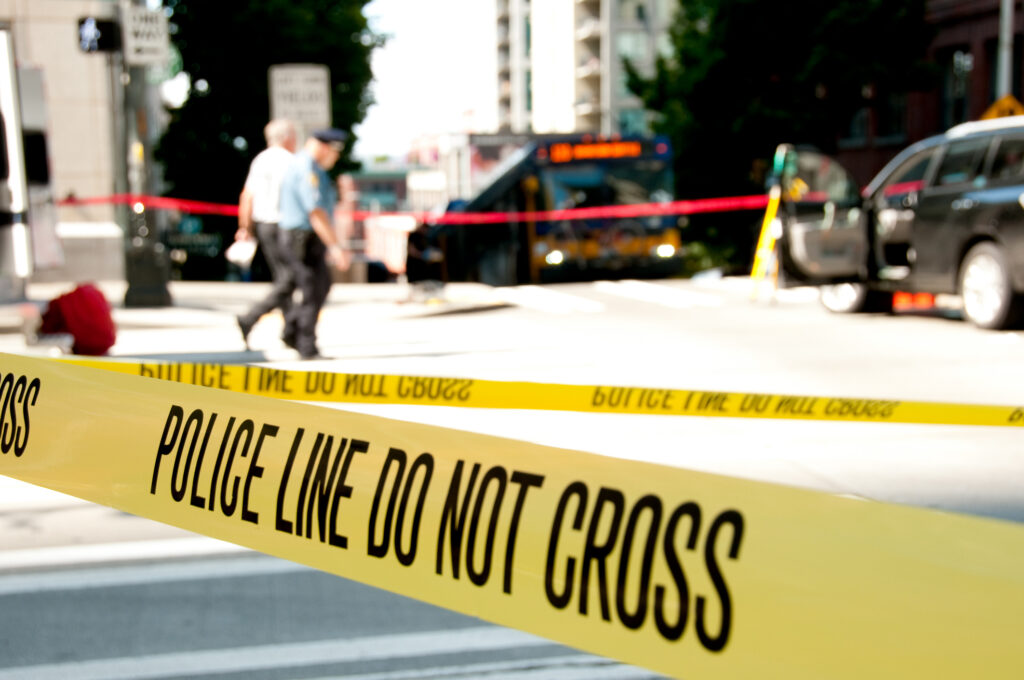Last year, there were more than 650 mass shootings in the United States. For the victims of active shooter incidents, a common question they are forced to face is: What support exists for the resulting costs? Who will help the victims?
It’s a question lawmakers and insurers are still answering. Gun violence costs the U.S. $557 billion each year. Insurance coverage has had to adapt to increased domestic terrorism, becoming less exclusionary in its language and changing its policies to actively support victims. It has been a major driver in the evolution of McGowan’s own active shooter insurance policies as we work to help victims secure the assistance they need to heal.
This blog will cover what violent crime victim compensation should include, who should bear the costs, and how insurance can provide care for victims as quickly as possible.
What Should Violent Crime Victim Compensation Include?
While benefits differ based on the crime, they often include:
- Medical costs: The treatment for health care due to gun violence totals billions every year, requiring financial assistance from public and private insurance.
- Funeral and cemetery expenses: Funeral costs often fall on a victim’s next of kin, adding additional stress to a time that should be dedicated to grieving and healing.
- Counseling: As survivors and their families heal, counseling can be a significant aid in processing a loss or the active shooter incident itself.
- Relocation: Safe temporary or permanent assistance is needed for families living in households or residences where gunshot incidents occurred.
Other types of violent crime victim compensation include basic needs such as loss of wages, help with rent or utilities, a food budget, childcare costs, or other expenses.
Who Provides Funds for Violent Crime Victim Compensation?
Compensation is handled at the state level. Every state has access to funds from the Federal Victims of Crime Act (VOCA), ensuring help is available nationwide in local areas. To learn what assistance each state offers, visit the Office for Victims of Crime (OVC) dedicated Help in Your State page.
The compensation each state provides is also changing as lawmakers work to provide adequate support across the country. For instance, the Virginia state budget recently added a $10 million fund for victims of mass casualty events following shootings at the University of Virginia and the Chesapeake Walmart mass shooting. Maine recently announced the state would cover funeral costs for families of victims of the deadliest mass shooting in the state’s history. Meanwhile, funding from the U.S. Small Business Administration supported affected businesses.
Individual cities can also provide compensation for violent crime victims through initiatives such as Chicago’s Emergency Supplemental Victims Fund (ESVF), which provides financial assistance to survivors and their families. Assistance exists for victims and their families, and coverage is adjusted every year to better support them.
What About Medical Care?
A primary concern for active shooter survivors is how to cover healthcare costs. Following a gun attack, survivors typically add $30,000 on average to their medical spending.
These costs are primarily paid for by public health programs, such as Medicare, Medicaid, other insurance programs such as workplace compensation, or even employer-provided private insurance. The result is that 4% of healthcare costs are out of pocket for survivors who either lack insurance or opt to pay for the care themselves.
However, this does not paint the complete picture. Victims and their families have further costs—long-term treatment or loss of wages, highlighting the importance of basic needs funds like those provided by Chicago’s ESVF in violent crime victim compensation.
Read more: Active Shooter and Terrorism Insurance Coverage
How Can Insurance Help?
At McGowan Program Administrators, we understand that while creating an insurance product to fulfill a need, we must also answer the question: Who will help the victims?
Part of this is recognizing how difficult it has been to secure compensation. Any financial assistance used to require a lawsuit put forward by victims, communities, parishes, churches, and nonprofits as they attempted to secure the compensation needed to heal. These lawsuits were lengthy and costly—and could even result in a lack of any compensation at all.
That’s why McGowan’s Active Shooter & Workplace Violence Insurance was created. It provides immediate, day-one victim benefits while covering business-related extra expenses and liability coverages. Our day-one victim benefits include:
- Counseling services
- Medical expenses
- Funeral coverages
- Death benefits to the beneficiaries
Also read: Top 10 Things to Look for in an Active Assailant Insurance Policy
The result is that organizations are better equipped to respond with acts of kindness for the victims while ensuring they can maintain business operations. Learn more about our insurance policies here, or get in touch with an expert from McGowan at 800-545-1538.


